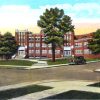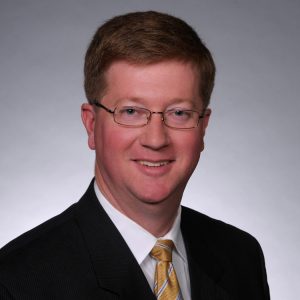calsfoundation@cals.org
Arkansas Governor’s School (AGS)
Arkansas Governor’s School (AGS) is a four-week summer residential program for gifted and talented students who are upcoming seniors in Arkansas public and private high schools. AGS is funded by the Arkansas state legislature as a portion of the biennial appropriation for gifted and talented programs in the budget of the state Department of Education. The state funds provide tuition, room, board, and instructional materials for each student at the school. A site selection team from the Department of Education reviews applications from Arkansas colleges and universities and awards a three-year contract to lease the site. Hendrix College was the host institution since the inception of AGS in 1980 until 2018, when the state Board of Education voted to transfer the school to Arkansas Tech University.
AGS held its first session, a six-week program, during the summer of 1980 with 276 students in attendance. Beginning in 1984, 400 students have been selected to attend each year. Each year, approximately forty faculty members and forty residential life and office staff are hired to work at the school.
During the 1990s, the AGS increasingly came under fire from religious conservatives, such as members of the Arkansas Family Council, some of whom distributed petitions stating that the school “blasphemes and militantly attacks Christianity, promotes the acceptance of homosexuality, fosters a disloyalty to parents and encourages rebellion against authority and introduces students to witchcraft and occultism.” After Governor Bill Clinton, during whose first term in office the school was founded, was elected president in 1992, such attacks gained national attention, and the AGS was the subject of an “exposé” video titled, The Guiding Hand: The Clinton Influence on Arkansas Education, although many of the former students featured in the video later claimed that their comments were taken out of context.
AGS integrates students from various academic and artistic disciplines and includes coursework in conceptual development and social and personal development, as well as in the academic and artistic areas. In 2007, a specialty academic area in health science was added. Approximately twenty-three states offer some form of governor’s school, either as a comprehensive or discipline-specific program.
The school, which is not for credit, creates a unique experience for a select group of some of Arkansas’s best students. Both inside and outside the classrooms, the school provides highly motivated, creative students with an intellectual atmosphere impossible to sustain in ordinary academic settings. The curriculum of the AGS is designed as a unique supplement of the usual high school and college curricula. It is neither an acceleration of nor an anticipation of course work at either level. Students are led to explore the cutting edge of knowledge acquisition, theories of knowledge integration, and twentieth- and twenty-first-century worldviews. Emphasis is placed on the skills of abstracting general concepts from particular facts, developing and integrating theories, and creatively extrapolating facts and theories to human uses and applications. The educational experience of AGS is enriched by three components beyond the classroom curriculum: a series of ten to twelve nationally renowned guest speakers, a series of films of intellectual significance, and the school’s own series of student performances.
Guest speakers have included national and international figures, such as Rudolph (Rudy) Giuliani, former mayor of New York City, who spoke on leadership and public service; James Loewen, a bestselling author who spoke on history; Phyllis Schlafly, a conservative political activist who spoke on legislative and judicial issues; and John Churchill, executive director of Phi Beta Kappa, who spoke on democracy issues. Speakers for the 2007 session included Joseph Sebaranzi, former head of the Rwandan parliament; Michael Shermer, author and editor of Skeptic magazine; marine biologist Edith Widder; and quantum physicist Ben Schumacher.
Students are selected on the basis of their special aptitudes for a course in one of nine fields: choral music, development engineering, drama, English/language arts, instrumental music, mathematics, natural science, social sciences, or visual arts. All students also take classes in general conceptual development and in personal and social development. Students must be nominated by and apply through their respective schools. A selection team appointed by the Department of Education selects the top qualified students for admittance.
In 2018, the state Board of Education, led by Johnny Key, voted to transfer the school to Arkansas Tech University, which had proposed a curriculum centered upon technology literacy rather than a broader approach to intellectual inquiry.
For additional information:
Arkansas Governor’s School. https://www.atu.edu/ags/index.php (accessed November 17, 2025).
Howell, Cynthia. “Tech Selected to Take over Gifted Program.” Arkansas Democrat-Gazette, September 14, 2018, pp. 1B, 3B.
Leveritt, Mara. “Liberal Arts.” Arkansas Times, April 1, 1993, pp. 12–13, 15.
National Conference of Governor’s Schools. https://www.ncogs.us/ (accessed May 20, 2024).
Lyle Rupert
Hendrix College









Comments
No comments on this entry yet.